Vitamin B9 : Vitamin B9 is a water-soluble vitamin that is essential for your body.…
Top 10 Indian Foods Rich In Vitamin C
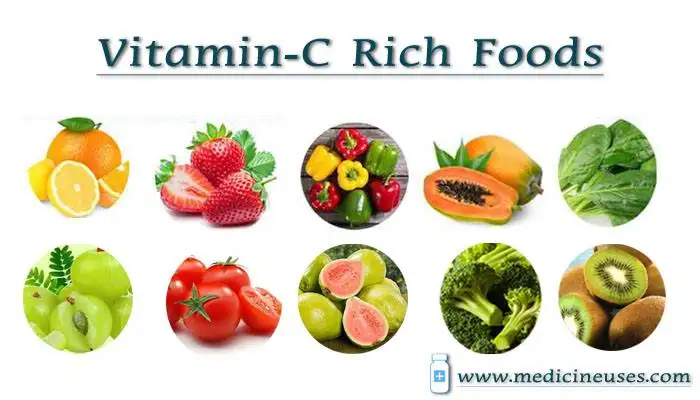
Vitamin C is an essential nutrient needed for the body to develop and maintain healthy teeth, bones, cartilage, and blood vessels. Vitamin C has many other benefits as well. It aids in the production of collagen, a protein that helps keep skin elastic and youthful-looking. Vitamin C also helps to form blood clots and heal wounds.
Vitamin C :
- Vitamin C is the most important vitamin required by the body
- It’s needed for breaking down of proteins in the body
- It has antioxidative properties
- Helps in boosting immunity and stop the growth of cancer-causing free radicals in the body
- Vitamin C is commonly found in fruits and vegetables
- It’s important to note that eating these fruits and vegetables raw is the best way of adding Vitamin C to your body, as excessive heat might destroy the Vitamin and other essential nutrients and minerals in the food
- For simplicity, follow the red, green, yellow rule, which pretty much includes all Vitamin C-rich foods
The Best Vitamin C Foods in Your Diet:
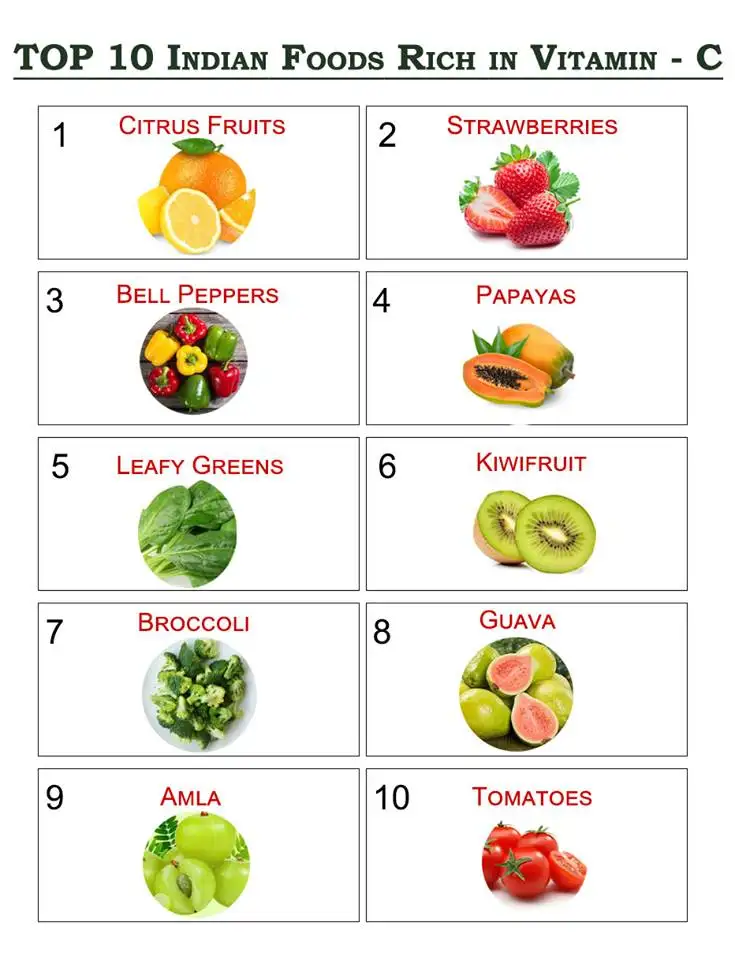
| 1 Citrus Fruits | 2 Strawberries |
| 3 Bell Peppers | 4 Papaya |
| 5 Leafy Greens | 6 Kiwi |
| 7 Broccoli | 8 Guava |
| 9 Amla | 10 Tomatoes |
Ten Important Indian Foods Which is Rich in Vitamin C –
1. Citrus Fruits :
- Fruits like oranges, grapefruits, lemons and limes are all good sources of Vitamin C
- Orange juice is also a great diet fruit juice as one 100 gm serving contains just 45 calories and 93 mg of Vitamin C
- The same amount of grapefruit juice contains 70 mg of Vitamin C
- Sweet lime has 40 mg /100 gm of Vitamin C
- Lemons contains 53 mg of vitamin C in 100 gm and are used in many detox water recipes to flush out toxins from the body and it’s advisable to take them early in the morning with ginger and water
- All these fruits can be used in preparing cocktails, desserts and parfaits
2. Strawberries :
- Strawberries are the most flavourful and the tastiest berries
- They are rich in antioxidants and extremely rich in fiber
- Good for the heart and beautiful skin
- 100 gm serving of raw strawberries has 59 mg of Vitamin C
- Help in digestive health and makes you feel full for longer
- Toppings on yogurt or ice-cream cups or make smoothies and juices
3. Bell Peppers :
- Highest sources of Vitamin C for vegetarians
- Highly nutritious and have numerous health benefits
- Taste enhancers in both vegetarian and non-vegetarian dishes
- Have pro-heart benefits
- Prevent cataracts
- Prevent blood clot formation in the veins
- Reduces the risk of heart strokes and diseases
- One half cup of raw red bell peppers packs as much as 140 mg of Vitamin C
4. Papaya :
- Papaya is rich in antioxidant and Vitamin C
- It has an enzyme called Papain that aids digestion
- It can be used as a meat tenderizer
- Also high in fiber and water content
- Reduced risk of heart disease, diabetes, cancer, improving blood glucose control in people with diabetes, lowering blood pressure, skin, vision health and improving wound healing
- Papaya has 102% of Vitamin C in 100 gm and has 39 calories
- Add it to your smoothies or eat them raw
5. Leafy Greens :
- Leafy green vegetables like spinach are pretty rich in Vitamin C
- Richest sources of plant nutrients
- One 100 gm serving of spinach packs as much as 120 mg of Vitamin C
- Everyday consumption is recommended
- Reduces risk of obesity, heart disease, high blood pressure and mental decline
6. Kiwi :
- Kiwi has even more Vitamin C than an orange
- Kiwi is called Vitamin C power house
- About 2 medium sized kiwi fruits contain as much as 137.2 mg of vitamin C
- They are also rich in potassium, flavonoids and copper
- Helps strengthening respiratory tracts
- Kiwis can also be used in desserts (cakes and pastries), fruit juices, cocktails salad dressings, fruit salads, etc
7. Broccoli :
- Broccoli is your most trustworthy healthy companion
- You can eat it raw or cooked
- This green cruciferous vegetable has 132 mg of Vitamin C in 100 gm
- Full of fiber and just about 30 calories
- It also detoxifies your blood and flushes out harmful stuff
- Used in salads, pizzas, pastas or simple stir fry or curry recipes
8. Guava :
- Rich in Vitamin C
- 100 gm guava contains as much as 250 mg of Vitamin C
- This much Vitamin C is over twice our daily intake requirement
- Rich in other essential nutrients like dietary fiber, folic acid, potassium and manganese
- Good diet super foods as one 100 gm serving contains just 68 calories
- Guavas are very versatile fruits, and can be used in desserts, fruit salad, juices and cocktails
9. Amla :
- Amla is indian secret fruit used by Indian Ayurveda experts and herbologists
- Highly nutritional food with concentrated supplies of Vitamin C in nature
- 100 gm of amla contain 600 mg of vitamin C
- One can have it in sweet pickled form or dried, made into a candy and then eaten
- Amla juices have immune-boosting properties
- Protect the body against seasonal or other diseases
10. Tomatoes :
- Bright red fruits, often mistaken as vegetables are pretty rich in Vitamin C
- 100 gm of raw diced tomatoes containing almost 100 mg of the Vitamin C
- Helps for healthier skin and gives cooling effect on the skin
- Rich in antioxidant and has anti-inflammation properties
- Reduced risk of heart disease and cancer
- It also has potassium, folate, and vitamin K
Side Effects Associated with Vitamins Deficiencies
Vitamin C is an essential nutrient that the body needs for many functions. They are also known as micronutrients because they are needed in small amounts. The fast-forward lifestyle and change in metabolism and food habits lead to people not getting enough time to focus on their diet and may need to take supplements.
Side effects of vitamin deficiencies include anemia, fatigue, and a weakened immune system. These known side effects may lead to severe health problems like heart disease and cancer.
There are many different types of vitamins with different sources. The most common sources of vitamins include vegetables, fruits, grains, dairy products, and meats.
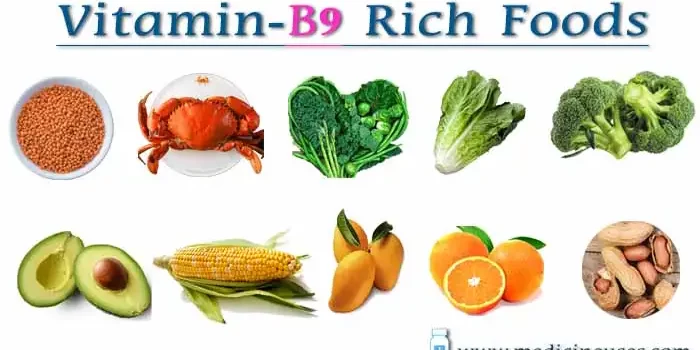
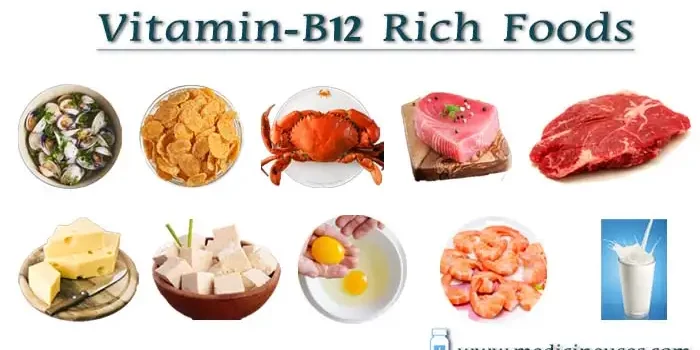
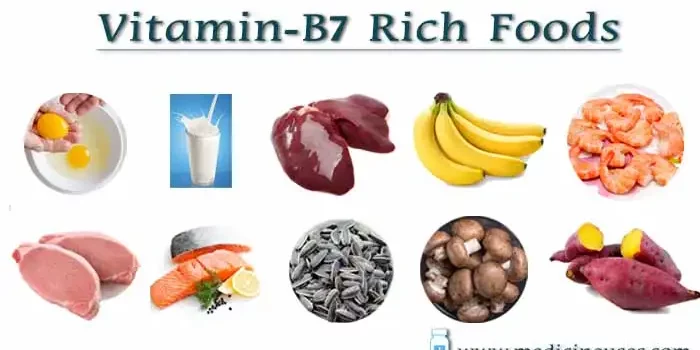
This Post Has 0 Comments